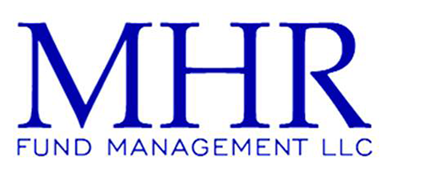16 Apr The Smart Money Behind ‘The Hunger Games’

When The Hunger Games: Catching Fire hits theaters this November, premiere night will be packed with famous faces. Actors like Jennifer Lawrence and Donald Sutherland. Authors like Suzanne Collins. And circulating somewhere on the red carpet among them, without drawing a single photographer’s flash, will be the man who has profited from The Hunger Games more than anyone else: Mark Rachesky, chairman of Lions Gate Entertainment Corp., the movie and TV studio behind The Hunger Games, Mad Men and other big hits.
At 54, Rachesky runs MHR Fund Management, his $6 billion Manhattan investment firm that is Lions Gate’s biggest shareholder, with a 38% stake, a position that has earned $1.5 billion in paper profits. Rachesky thinks it will make a whole lot more from the latest Hunger Games. “I would be very surprised if this isn’t going to be a huge movie,” he says.
Rachesky, however, is secretive and likes to stay behind the scenes. Hollywood is littered with money men who were lured by the glitter of the movie business only to suffer losses, but Rachesky has made a fortune at it while keeping a low profile. His latest fund has returned 13% annually since 2007 thanks to Lions Gate and investments in industries ranging from trucking to energy, and he stands to earn at least $200 million in performance fees, and maybe much more, if things continue to go well. He is also raising $2.75 billion for a new investment pool. “He is very, very competitive,” says veteran Wall Street investment banker Joseph Perella, who’s seen Rachesky up close in the boardroom–and on the golf course. “He really wants to win.”
The former deputy of Carl Icahn, Rachesky now invests alongside his former boss, and in the case of Lions Gate, they battled against each other. Rachesky makes bets on assets that are usually in trouble, a dangerous corner of the finance game that requires him to have sharp elbows. He practices a unique style of investing that falls between fast-paced hedge fund traders and private equity players who buy companies in leveraged buyouts. Instead, Rachesky likes to buy debt and minority stakes in distressed companies in a way that allows him to exercise his will for a long time without having to pay for the privilege. Sometimes he will look like an activist hedge fund trader, buying a slug of stock and demanding board seats and management changes, as in his current investment in flailing truckmaker Navistar International. But unlike the activist traders, he will stick with an investment for years, like with his hugely successful involvement in satellite operator Loral Space & Communications, which has lasted for over a decade. At the same time, Rachesky won’t go near an auction to buy a company outright.
In other words, Rachesky is a bit quirky. In his office he always tries to sit with his back to the window so he can see what’s going on around him. He effortlessly draws diagrams of his investments upside down for the benefit of whoever is sitting opposite him. Rachesky is just trying to stay out of a game in which the vast majority of hedge fund traders struggle to outperform the market and buyout barons pay top dollar for companies that are widely pitched by the likes of Goldman Sachs. “You can buy less than a majority of a company and still have significant influence and control but not have to pay that vast control premium,” he says in his first on-the-record interview. “I am a huge believer that either you are in control of your own investment or someone else is in control, and they are not looking out for you.”

